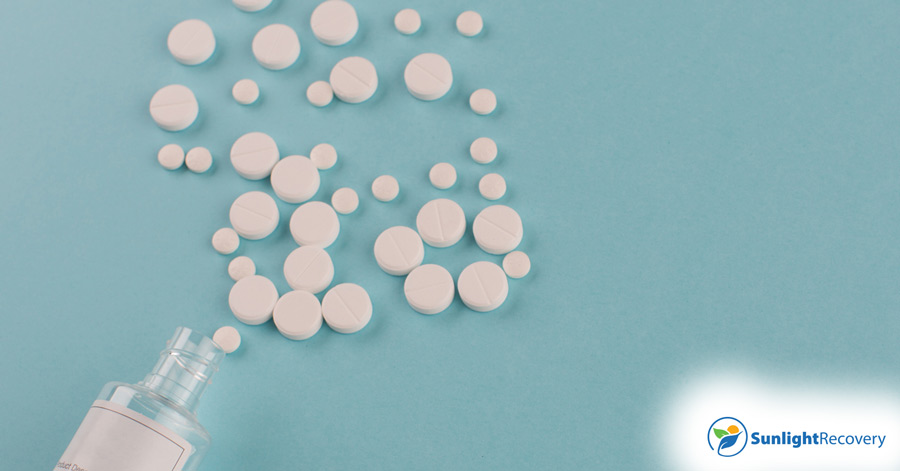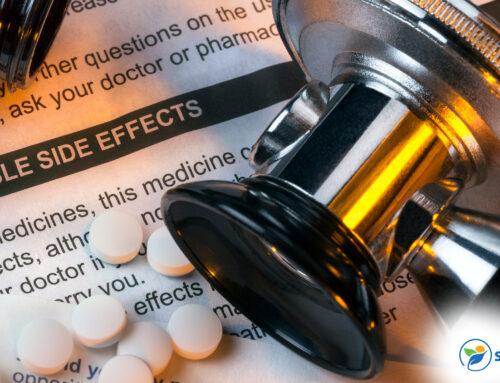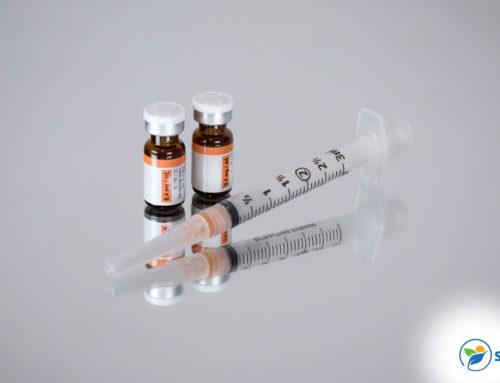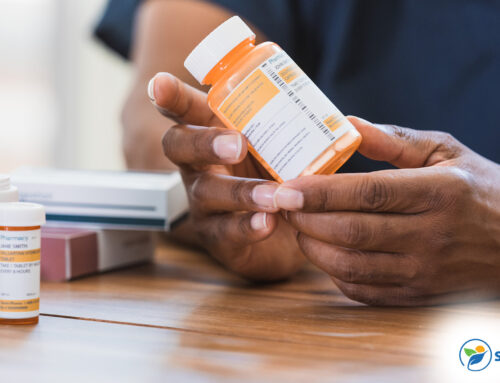According to numbers reported in the Pharmaceutical Journal, antidepressant usage has increased in adults by close to 35% from 2016 to 2022. This class of medications is used to treat a variety of major depressive disorders, anxiety and chronic pain conditions, and Zoloft is just one major brand of antidepressants commonly used today. Still, you may be wondering: can you overdose on Zoloft?
Given the sheer volume of prescriptions written for this class of medication, it’s easy to understand why overdose and improper use can be a concern. Keep reading to learn more about what Zoloft does and how you can prevent misuse.
What Is Zoloft and What Does It Do?
Zoloft is the brand name for the medication sertraline, which is most commonly prescribed to treat major depressive disorder (MDD), anxiety, panic attacks and post-traumatic stress disorder (PTSD). While it’s mostly prescribed to adults, it’s also used in children ages 6 to 17 to help treat obsessive compulsive disorder (OCD).
Sertraline is also known as a selective serotonin reuptake inhibitor (SSRI). SSRIs work by increasing the level of serotonin in the brain, which is a chemical messenger that’s responsible for moods, emotions and sleep.
When used correctly, Zoloft reduces feelings of fear and can help improve your mood, make it easier to sleep, improve your appetite and energy level and make it easier to return to your normal daily living. Dosages range from 25 milligrams to 200 milligrams. Your physician may start you on a low dosage and adjust the range depending on your medical history and reduce any risks of side effects.
It can take as many as 4 to 6 weeks to feel any improvement in your condition once you start taking Zoloft, and the length of time you are required to stay on the medication can vary depending on your condition. For minor depression, Zoloft may be used for up to 6 months, while individuals with more severe or chronic conditions may be placed on the medication for years.
Known Side Effects of Zoloft
When you begin taking Zoloft, you may experience a range of side effects. These effects may differ from one person to the next, and conditions will typically improve over the first couple of weeks as you become adjusted to the medication. During this time, it’s important to avoid operating heavy machinery, and you shouldn’t drive or take part in other dangerous activities until you understand how the medication affects you. Common side effects may include:
- Loss of appetite
- Increased drowsiness
- Sweating
- Noticeable tremor
- Decreased libido
- Anxiety or increased agitation
Some people may experience rare or more serious side effects, which should be reported to your physician immediately. These symptoms include:
- Hallucinations
- Racing heartbeat or high blood pressure
- Seizures or convulsions
- Unusual bruising
- Confusion
- Difficulty concentrating
Can You Overdose On Zoloft?
An overdose occurs when you take too much of the recommended dosage of a medication, which is possible with any drug, including Zoloft. So, can you overdose on sertraline? While a Zoloft overdose is rare, taking too much can still result in a wide range of complications, including inflammation of the pancreas, heart problems and serotonin syndrome. Many individuals believe that Zoloft works the same way as Xanax and other benzodiazepines, which act immediately to control panic and anxiety. Because it takes time to feel any effects, you may be tempted to take more, which results in an overdose.
Like any drug, your Zoloft prescription is based on your weight, condition, age and any other medications you might be taking. Your doctor may adjust this dosage as your needs change, but it’s important to listen to your physician and not change the dosage on your own. Taking more of the prescription, especially if you combine it with other drugs and alcohol, can affect the way the body metabolizes the drug. You should also never stop taking the medication cold turkey, which can also result in a variety of unwanted side effects, including suicidal thoughts.
Consequences of a Zoloft Overdose
Because it takes time for Zoloft to affect the body, an overdose may not be apparent immediately. Small increases in the medication may not be noticeable at all, or it may take several days for you to feel any changes. In larger doses, Zoloft overdose symptoms may range from mild to life-threatening. Mild symptoms of a Zoloft overdose include:
- Nausea and vomiting
- Tremor
- Fever
- Increased drowsiness
- Agitation
More severe symptoms of an overdose include:
- Changes in blood pressure
- Mania
- Hallucinations
- Fainting
- Serotonin syndrome
What Is Serotonin Syndrome?
Serotonin syndrome (SS) is a potentially life-threatening condition that can occur during an overdose of Zoloft or when your body has too much serotonin. The symptoms of SS can vary from rigid muscles, fever, seizures, shivering and diarrhea. In some severe cases, SS can even result in death. Milder symptoms of SS typically go away after just a few days after the overdose; however, in some cases, your physician may prescribe a medication to block serotonin to reduce the side effects.
Other common symptoms of SS include:
- Insomnia
- Rapid heart rate
- Heavy sweating
- Headache
- Confusion
- Dilated pupils
- Restlessness
- Loss of muscle coordination
Treatment for Zoloft Overdose
If you’re worried you or someone you love has overdosed on Zoloft, it’s important to seek help immediately to avoid any serious complications. Call 911 or seek medical attention immediately. If you’re with a loved one who has overdosed, it’s important to stay with them and keep them calm until help arrives. In treatment, serotonin levels are monitored and may be lowered using medications that block the levels of serotonin in the body. Mild to moderate symptoms of a sertraline high or a Zoloft high typically go away on their own over a period of a few days or as the drug is metabolized and eliminated from the body, while more severe symptoms may require intervention, including pumping the stomach to remove the medication, sedation and IV fluids.
Recognizing the Need to Seek Help
To receive help with a Zoloft addiction or a Zoloft overdose, contact us at Sunlight Recovery for more information on how we can help. Our caring professionals are available 24/7 to answer questions and to get you started on the path to recovery.






